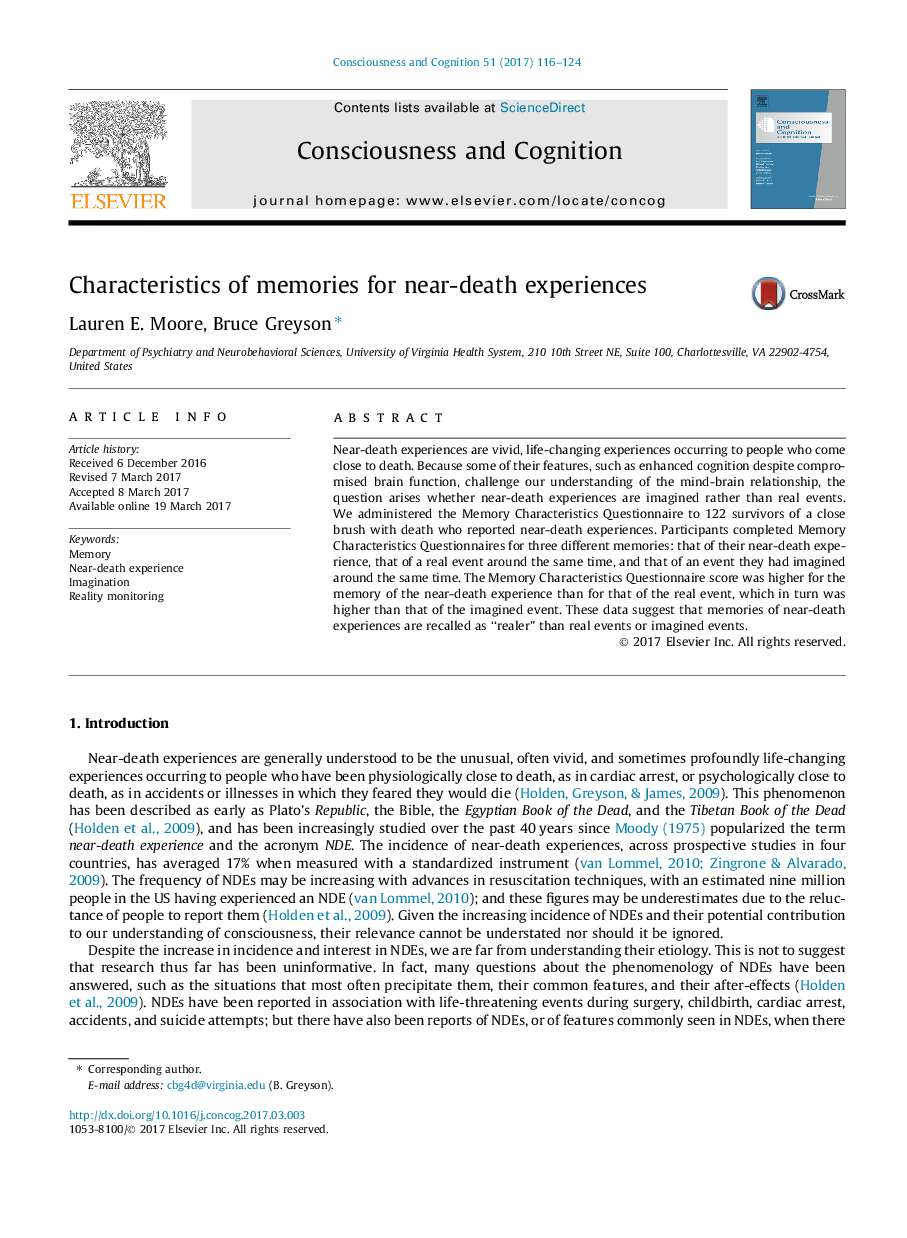| Article ID | Journal | Published Year | Pages | File Type |
|---|---|---|---|---|
| 5041839 | Consciousness and Cognition | 2017 | 9 Pages |
â¢Survivors of near-death events rated memories of that event and of comparison events.â¢Memories of real events were more vivid and detailed than those of imagined events.â¢Memories of near-death experiences were more vivid and detailed than of real events.â¢Near-death experiences were thus remembered as “more real” than were real events.â¢Near-death experiences were remembered as hyperreal and not as imagined events.
Near-death experiences are vivid, life-changing experiences occurring to people who come close to death. Because some of their features, such as enhanced cognition despite compromised brain function, challenge our understanding of the mind-brain relationship, the question arises whether near-death experiences are imagined rather than real events. We administered the Memory Characteristics Questionnaire to 122 survivors of a close brush with death who reported near-death experiences. Participants completed Memory Characteristics Questionnaires for three different memories: that of their near-death experience, that of a real event around the same time, and that of an event they had imagined around the same time. The Memory Characteristics Questionnaire score was higher for the memory of the near-death experience than for that of the real event, which in turn was higher than that of the imagined event. These data suggest that memories of near-death experiences are recalled as “realer” than real events or imagined events.
